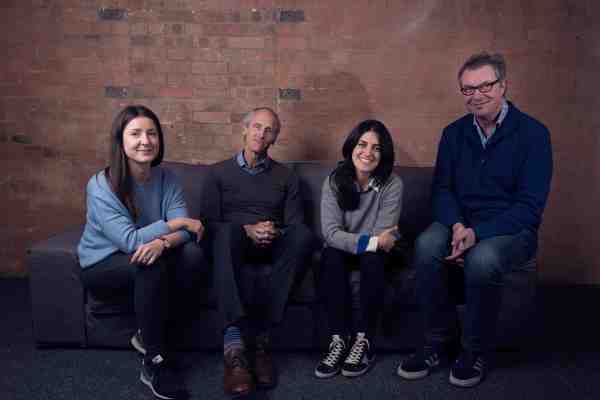Kindred Capital, a London-based VC firm that has actually been up and running since 2015, is announcing that it has closed its first seed fund of £80 million, money it has already been deploying in around 20 tech startups throughout Europe over the last two years.
Portfolio companies include FiveAI, which is building a software layer for autonomous vehicles; Paddle, the software sales platform; Qriously, which conducts surveys via mobile apps; and Fairwill, a will-writing startup.
However, what makes Kindred Capital stand out from most seed investors or other size VC firms, is its so-called “equitable venture” model that sees every founder it backs get carry in the fund. This means they effectively become co-owners of Kindred Capital and, once investors/LPs have their investment returned, will share in any subsequent fund profits.
The idea, says Kindred Capital, is to achieve two things. Firstly, it thinks such an attractive (and relatively unheard of) offer helps the firm secure “premium” deal-flow, since what ambitious founder wouldn’t want some additional upside protection. That is, even if your startup deadpools or doesn’t achieve a meaningful exit, if you are backed by Kindred you’ll have skin in the game for the entire Kindred fund portfolio.
Secondly, there is another advantageous knock-on effect. It further incentivises each portfolio startup to bat for each other, whether that be through shared learning and support, or something harder like helping win the first users and/or customers.
Here’s how Kindred explained it in a Medium post published about a year ago:
The main way that VC firms earn money from their fund is by investing in great companies which provide a meaningful return to the fund, and keeping a percentage of those profits generated — typically around 20% of the profit, once the original investment is returned. This percentage is known as “carry” or “carried interest”, a term that originally referred to the fees charged by ship owners for carrying cargo. If I own a ship and you want me to take a load of cloth to the US, I’ll charge 20% of the profits when the ship arrives and the goods are sold.
Our bold idea was to share our fund’s profits with the founders we invested in — or give them 20% of the carry the fund would earn. This means that every founder we invest in becomes a partner in Kindred, and therefore into a partner in each other’s companies, and we can turn a partnership of four into a formidable army of partners, all rewarded for supporting and nurturing each other.
In practice there are a few caveats. Much like an options pool, carry points will vest over five years, with 20 percent vesting on the 1st anniversary of a backed startup founder’s allocation, and then vesting monthly until they are 100 percent vested on the 5th anniversary. When profits are finally shared (remember, it often takes years to exit, if at all), they’ll receive a share of any profits in line with their share of the carry points.
In addition, there are a few provisions if a backed startup goes out of business, gets acquired before five years or the founders leave. In most cases, the founders still remain a co-owner of Kindred’s fund but not all of their carry points will necessarily vest. This is to be decided at Kindred’s discretion, depending on the circumstances of a startup founder’s departure (e.g. a “bad leaver”).
“Our thinking behind this is that it’s very often other founders who are the most helpful people on the entrepreneur’s journey. So we thought that it was right and fair that they are rewarded for their efforts to help the whole Kindred portfolio,” Kindred Capital Partner Russell Buckley tells me. “Today, we have 45 carry owners (who are founders), so our portfolio are surrounded by a whole army of supporters to help them succeed”.
Meanwhile, regarding Kindred’s investment remit, Buckley says it targets seed investments with an average cheque size in the first round of £700,000 and prefers to be the first institutional money into a company.
“We reserve 70 percent of the fund for follow on investments in future funding rounds. One of the keys to investing in early stage companies is to keep investing in the stars of the portfolio and it’s important that the founders know that there is a good supply of future capital as they grow,” he says.
Kindred invests across Europe, but says it has a “U.K.-first” attitude, because of the wish to be in close proximity to the startups it backs. It also doesn’t focus on any one particular sector.
Explains Buckley: “First and foremost, we focus on finding and nurturing the very best CEOs and their teams. Once we’ve meet them, we essentially ask ourselves three questions: Are they solving a real problem? If they solve it, will they be able to create and build a very big business? Finally, we use a kind of litmus test of asking ourselves if we’d like to work for them, at an earlier stage in our careers – being able to attract a world class team is an essential skill for a founders”.
